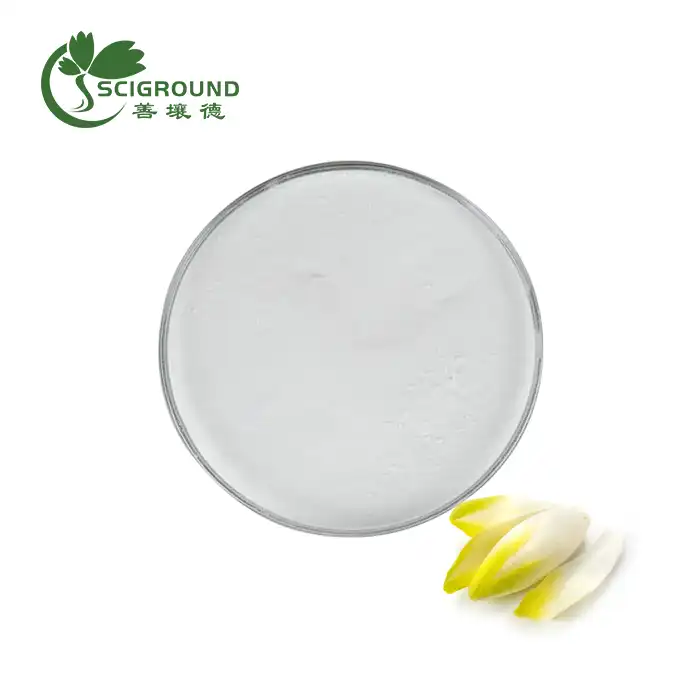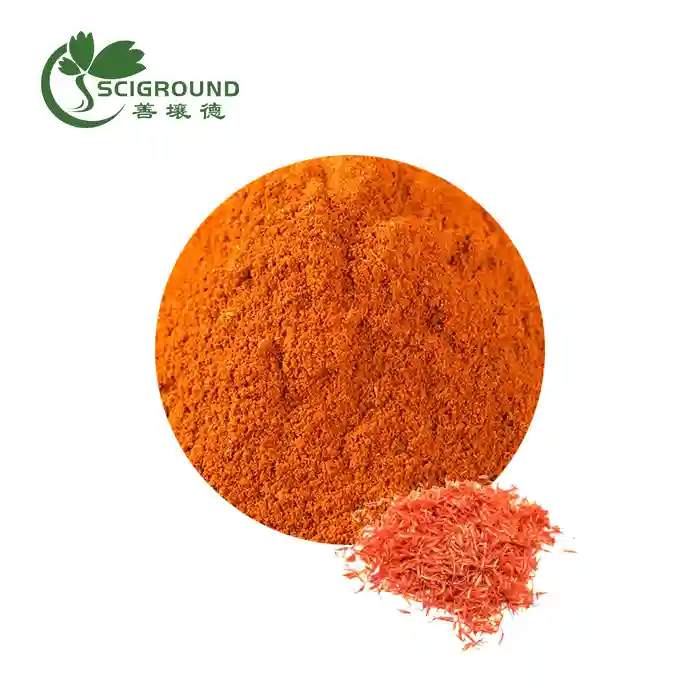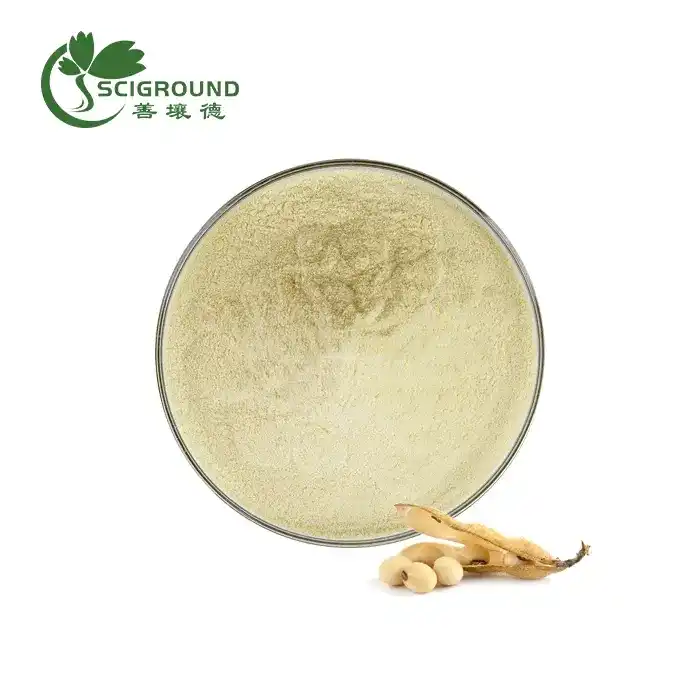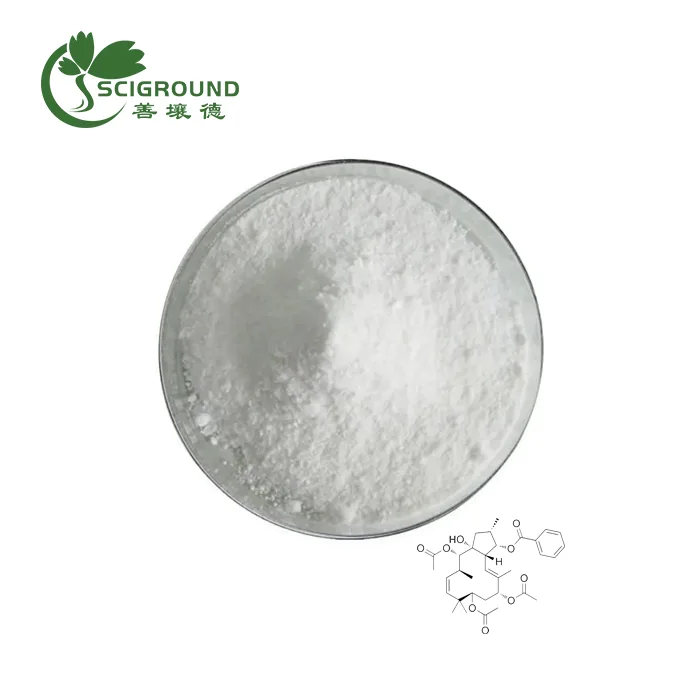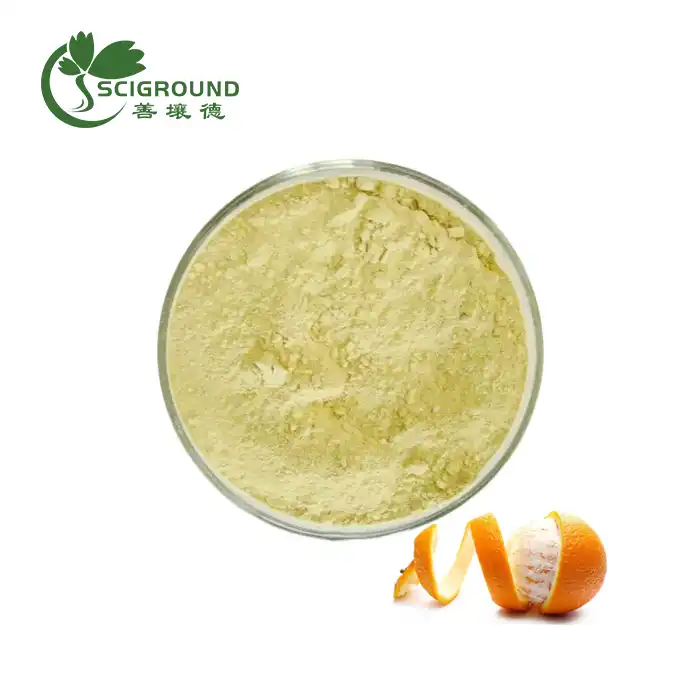Is Euphoscopin B safe?
Euphoscopin B (CAS No. 81557-52-0) is a natural ingredient isolated from plants that show unique bioactive properties. Euphoscopin B belongs to the diterpenoid class and has attracted much attention for the possibility of its therapeutic uses, especially in pharmacological research and traditional medicine. However, that hasn’t stopped discussion of its safety and efficacy while still under investigation.

What is Euphoscopin B?
Euphoscopin B is a natural compound usually produced by some plant species. The diterpenoid is a class of organic compounds with extensive biological activity. Often anti-inflammatory, antimicrobial, and antioxidant these compounds are valuable both in traditional herbal medicine as well as in modern scientific research.
Toxicity and Dosage
Determining how safe to use compounds, such as Euphoscopin B, are depends on toxicity studies. Euphoscopin B was preclinically tested, and it does not present significant toxicity by moderate doses in laboratory animals. However, researchers are quick to say that more studies are needed to find out whether it's safe for humans. One is that even naturally derived compounds can create problems for you if you take them in excessive quantities, so determining the appropriate dose is critical.
Potential Side Effects
Euphoscopin B is still being evaluated, so its full scope of side effects is not yet known. However initial studies show that there were no serious or acute side effects that occurred in animal models. We’ll monitor any adverse reactions that develop with long-term use or in people with known health conditions as research progresses.
Potential Benefits of Euphoscopin B
Anti-inflammatory Properties
Euphoscopin B is one of the most studied aspects of the potential anti-inflammatory effects. Many chronic health problems are associated with inflammation and advocated compounds that can reduce inflammation are much sought after by the medical field. Euphoscopin B was studied based on its potential to influence inflammatory pathways and thus may be useful in the treatment of inflammatory diseases, such as arthritis.
Antioxidant Effects
It was also known to have antioxidant properties. Antioxidants protect cells from damage by oxidative stress, potential causes of premature aging, and many diseases. Euphoscopin B may also neutralize free radicals in the body and hence promote overall health and wellness.
Antimicrobial Potential
Preliminary studies indicate that Euphoscopin B might have antimicrobial activity, and therefore may kill some bacteria and fungi. It could provide a valuable, natural alternative to treating infections, or even as a means for developing new antimicrobial agents, it can serve as a valuable.
Applications of Euphoscopin B
Pharmaceutical Industry
Euphoscopin B is a potential therapeutic for the pharmaceutical industry. The reason why it is a good candidate for developing new drugs or treatments for a long list of health conditions is due to its antioxidant, anti-inflammatory, and antimicrobial properties. It has to painfully go through rigorous testing before it can earn a medical stamp of approval, but it means something.
Cosmetic Industry
We also see a great demand for natural plant-derived compounds such as Euphoscopin B in the cosmetic industry due to their antioxidant and skin-soothing properties. Euphoscopin B can be marketed as a component in skin products that can protect skin from environmental damage, reduce inflammation, and promote youthful skin.
Dietary Supplements
Euphoscopin B can also be used in the dietary supplement industry on account of its potential health benefits. It can be considered as a supplement with antioxidant and anti-inflammatory properties to suggest general well-being or to help target a specific health issue like joint health or immune support.
Is Euphoscopin B Safe?
Euphoscopin B is a bioactive compound that could be used in many different industries. But it's still being assessed for safety. Although preclinical studies have indicated moderate toxicities of Euphoscopin B we still need further studies to ensure its safety in humans. Since dosage, administration method, and possible interactions with other compounds have to be considered, factors play a role.
Related Industry Knowledge
- Waht are the health benefits of Myrrh Extract?
- Is ginger powder the same as regular ginger?
- What does vitamin A acetate do for skin?
- Is it better to take astragalus in the morning or at night?
- Is inulin a prebiotic
- How do you take Reishi mushroom powder?
- Chicory Root vs Jerusalem Artichoke Inulin
- Does vitamin B1 make you sleepy?
- White Willow Bark PE: A Natural Remedy for Pain Relief
- Exploring Wheat Protein Flour: Benefits and Uses
